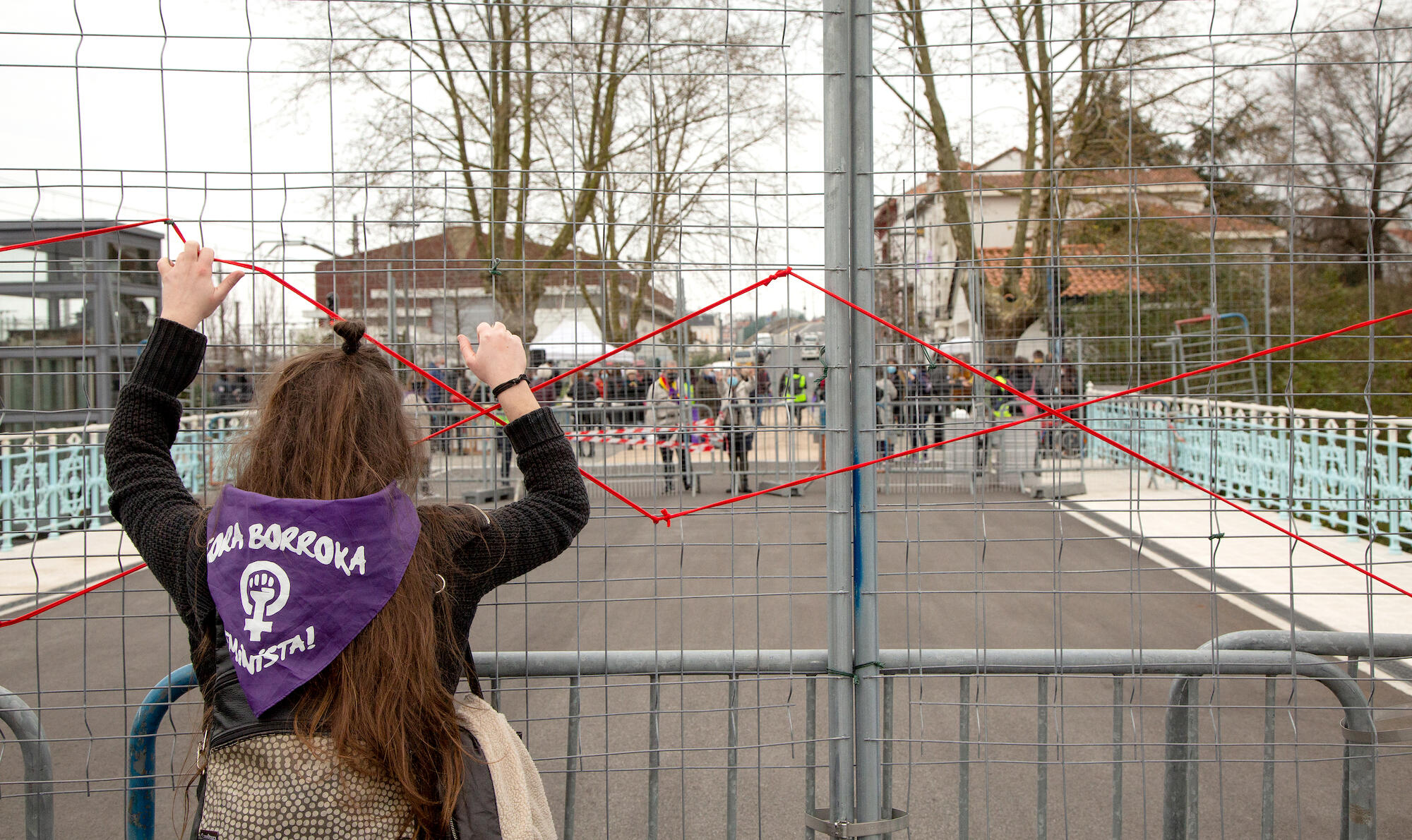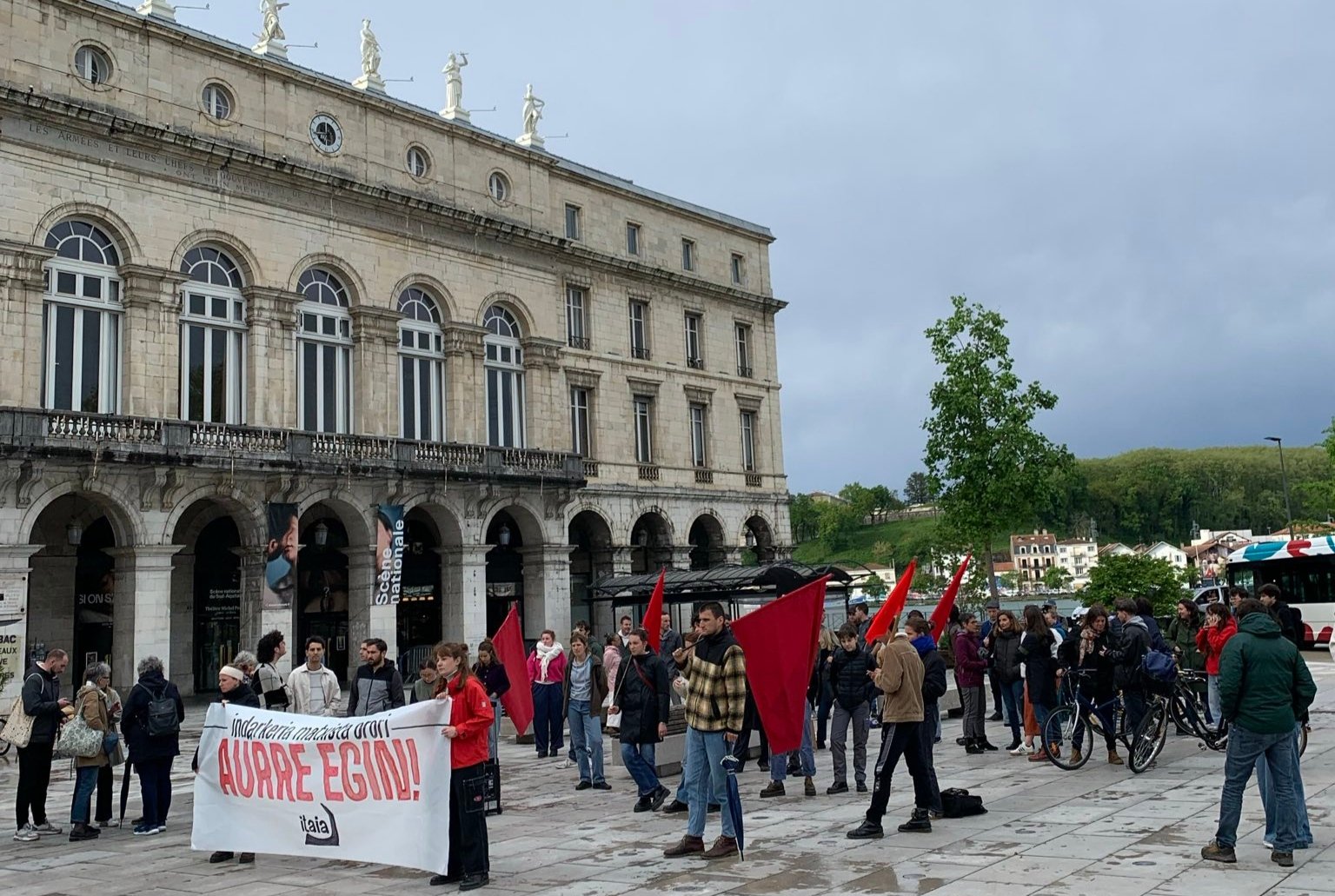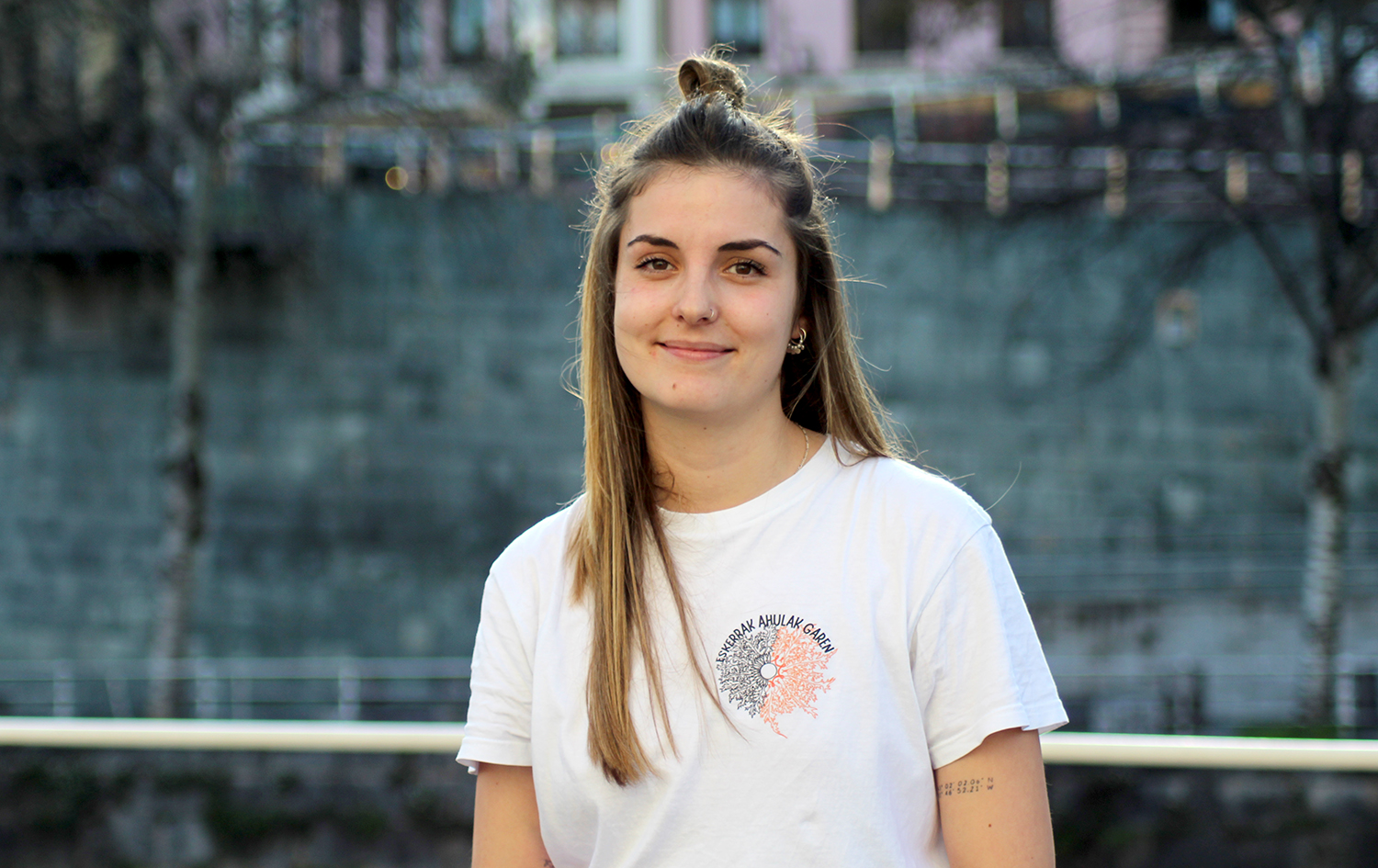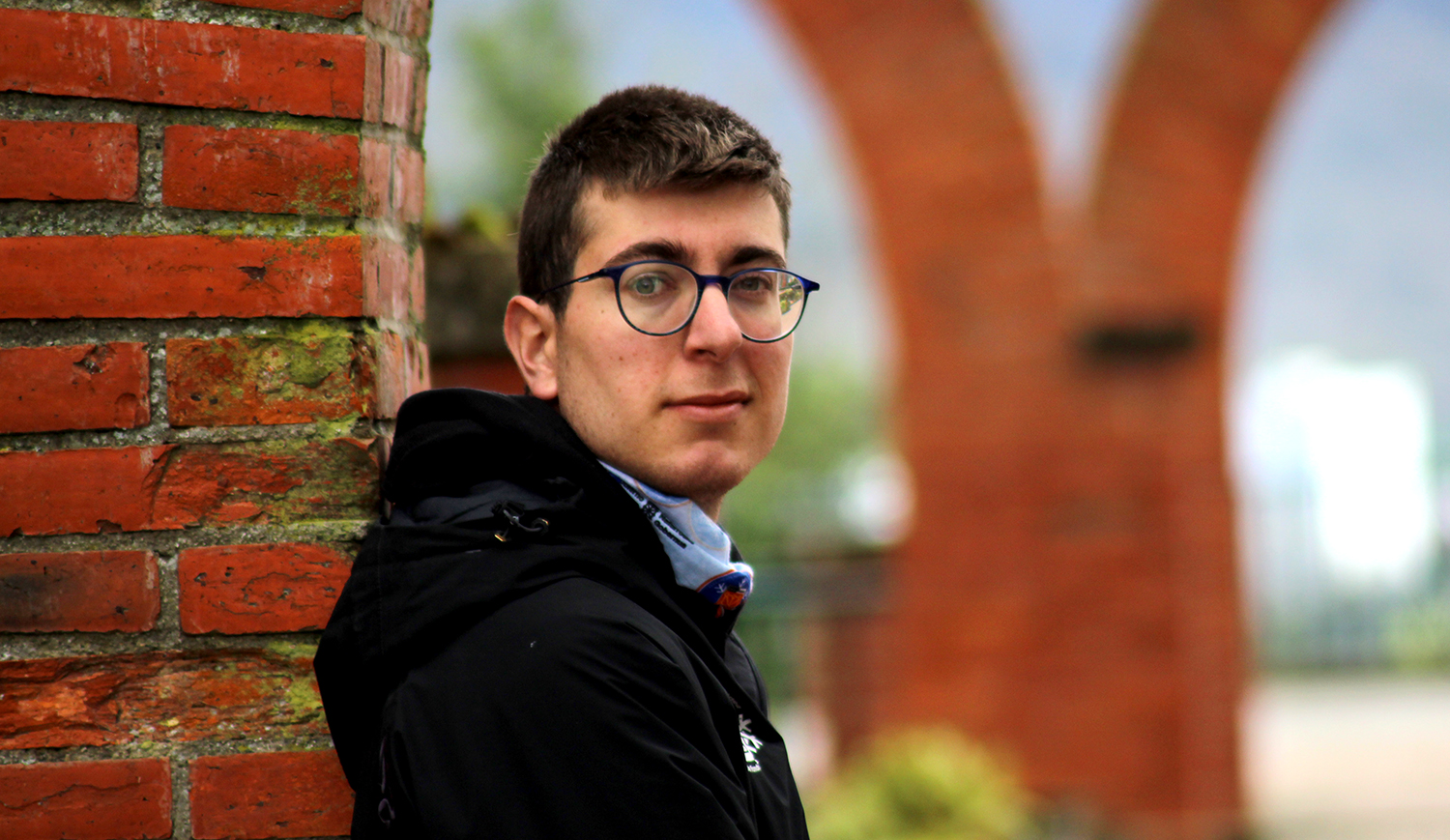Transformational resistance to return home
- On the wheel of the transformation of the left they often put sticks to the house, in that match Lorea Agirre, PILI Álvarez and Jokin Azpiazu. At the beginning of the year, at the Rosa Luxembourg Conference in Bilbao they discussed the resistance that feminism receives from the movements on the left.

Why is gender so important in the transformative movements on the left? What do we do with different subordinations? This is how the colloquium was initiated by journalist Lorea Agirre and the author of the biography of Rosa Luxembourg, to draw attention to the place that gender gives to the individual in society and to look towards intersectionality.
Agirre explained that although Luxembourg lived and denounced the oppression of gender and workers in the skin, intersectional feminism was initiated in the 1980s by Angela Davis and other black feminists in the United States. According to this, as oppressions mutually reinforce each other, the struggles to leave all subordinations must also be intersectional, interrelated.
Aguirre pointed out that subordinations should be made explicit and he questioned, in addition to repression, where privilege lies. He explained that intersectionality supposes distancing from stigmatization and victimization, and that if intersectionality is worked on in transformative movements, individuals play an important role: “What the feminist movement has achieved cannot be lost as it enters the leftist movements.”
Feminism emphasizes that nowadays, in addition to the parity between men and women, works for the development of democracy and for political inclusion. The dynamizing Olatz Harmful obeitia asked each of the rapporteurs to ask him a question and the journalist chose the famous one: Can you be without being a left-wing feminist?
.jpg)
“The interest in the simplification of feminism and the rush to leave the group of ‘suspects’ are two of the main problems men have with feminism, and to see them as a process that ends once three or four formulas have been learned”
Photo: Dani Blanco
After the aggression against
Agirre at home, the word was addressed by the sociologist and feminist militant PILI Álvarez. He referred to the difficulties encountered in left-wing movements in the creation of protocols against male assault and in reinsertion. To this day, he said that the protocols are working in few groups, let alone the inmates to deal with the aggressions within the group. He said that many don't see the need for that, that cows are looking at the train.
“The most painful thing is to think that because we are on the left it will be easier to approve a protocol.” Álvarez has placed as an obstacle that the assembly and horizontal movements do not realize the importance of the methodology. He explained that the protocol is hard to imagine as a process and that there is resistance to the word “aggressor”. “Not all members have feminist training, much less because of male violence. Among us, it is not heard that ‘workers also trample on others’ or ‘I know a worker who beat the bourgeois’, but that the girls also portray each other badly, or we can attack the boys, and that is not understanding structural violence.” Same with the need for tests. For Álvarez, questions like, "What if we punish a boy without evidence?" a reflection of Álvarez's resistance to give legitimacy to the girl's opinion.
He stressed that in the sphere of public holidays the issue of aggressions is left to feminist groups: “The other agents have nice words, but little involvement. In the feminist group to which I belong we are few and have little disposition, for example, to do protocol shifts at parties”. However, when there are many actors it is difficult to guarantee that all the knowledge of the protocol is present.
Alvarez also talked about another of the usual obstacles: time. The clash between the workload of the group and the protocol load is not used to, and he commented that protocols are often hurried, undiscussed.
The feminist activist pointed out that in the “liberating” spaces the rational hegemonic communication model also prevails, above the “silent mass” some voices are usually highlighted. And in the face of tensions, there is talk of theorization rather than feelings, although in internal protocols the emotional burden is much greater. He read in a text from an Asturian feminist group that it is easier to imagine the hysterical partner than the aggressor, and that therefore they are positioned as misunderstood to avoid the work involved in confronting him.
.jpg)
“It is not heard among us that ‘workers also trample on others’ or ‘I know a worker who touched the bourgeois’, but we girls also misbehave among us or we can attack the boys, and that is not understanding structural violence”
Photo: Maximum
And once you have the protocol, who implements it? According to Álvarez, “there are very few people willing to receive the battered girl, and that is the first step in a protocol.” However, despite the difficulties, he highlighted the positive aspects of having a protocol and of taking a more cohesive team out of the process. At the request of Injuobeitia, Álvarez’s question is as follows: Why do we behave as if there was no sexism among us? How can we transform this?
“Feminism is not a man”
Sociologist and entrepreneur Jokin Azpiazu, in general, went from man to man: “Let’s acknowledge that men are a social class and do the things we do within that social class; therefore, whether you like it or not, those aggressors belong to our social class.”
The interest in the simplification of feminism and the rush to leave the group of “suspects” are for Azpiazu two of the main problems men have with feminism, as well as their vision as a process that culminates once they have learned three or four formulas. “I’ve spent most of the hours of my life surrounded by feminists, and I don’t know one for which feminism has been an easy process.” Among other things, because privileges have to be managed: “What do we do when we enter lesbians through the door and are challenged by the privilege of our heterosexuality?”
Azpiazu successively and without mouthpiece listed the resistance that had been observed in men: “For starters, we don’t want to feel guilty. The theorization that has been made about guilt, as a Christian concept, does not like in the movements on the left. I don’t blame myself, I take him home and in the end I say ‘yes, it’s my fault, it’s my fault’ until a woman says ‘well, it’s not that much’. On the contrary, if we create mechanisms to intercede for a while and say “at what level is mine and what am I going to do?”, I will find ways for political solutions.”
The “bad” man, for his part, expressed his desire to caricature himself and to be in the “group of good men”. Example of the latest sanfermines: "The model of virility that must be overcome cannot be that of a violent civil guard. We take to the end the model of man that we don't want, so that most of us get out of there, instead of thinking about what our red lines are and how many times we go through them every day."
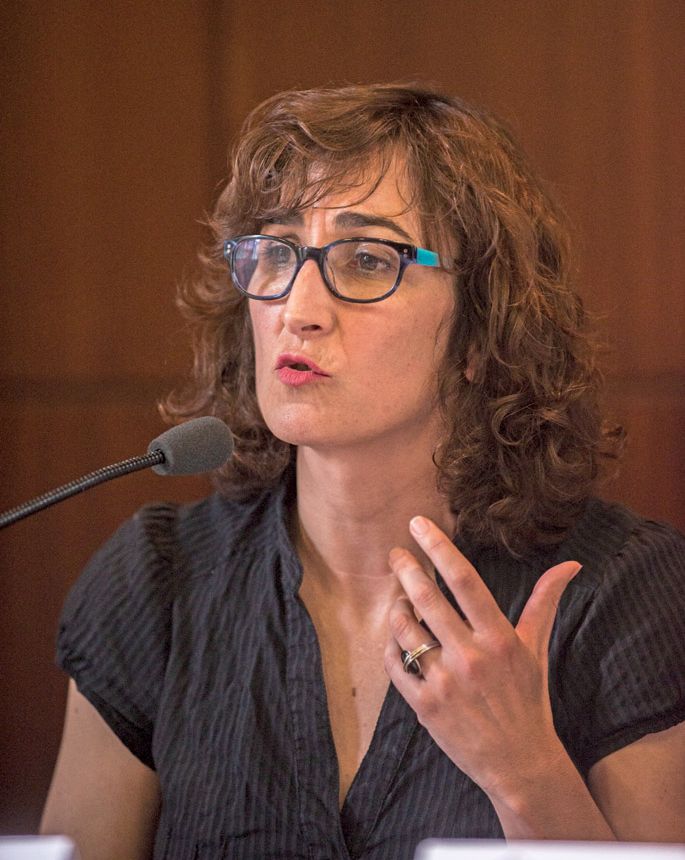
“The feminist movement cannot lose what it has achieved by entering the leftist movements”
Photo:Jaizkibel
Fontaneda / Argazki Press
Azpiazu pointed out his desire to approach feminism and turn it into a “perfect man”: “If we come home and practice our heterosexuality 2.0. or 3.0. we can be very egalitarian men, but what happens to us in depth is what a previous friend told me, who is hurt because her professional career has gone astray with a child, and not that of her partner.” He used the words of philosopher Marina Garcés to explain that politics is done when it is endangered. “If we mean anything in feminist politics men, or not to say it, we must also put ourselves at risk.”
The man who assaults does not define whether or not it is an attack. Thus, the sociologist pointed out that the lack of definition of the situation is also a resistance. “In the same social class, we identify ourselves with the inability to define the situation of that man. That’s why you have to make big or small betrayals of virility.”
Another point to the slogan “We are all feminists”: “We men have to be clear that feminism is not ours, perhaps for us, it can be with us, it is not ours.” Even though he saw quite a few men willing to compromise, he hesitated to make that commitment visible, if men don't join the most visible part of feminism. “When they attack a partner, the heroic hostility that men give is very spectacular, but the post-aggression work is invisible.”
He ended his speech in a straight line, addressing men: “Don’t think that the approach to feminism is to throw it head to the pool and take the swimsuit out in front of everyone.” And in the memory of Luxembourg, the last question, not least: “Are we men willing to identify ourselves as a social class and not just as subjects? Am I not? To assume our responsibility?”
Full talk on the multimedia channel: www.argia.eus/multimedia/solasaldiak/ezker-erresistentzietan-feminismoari-erresistentziak-zer-egin
Errepikatu nirekin: Sara Millerey. Ez dezagun ahaztu bere izena. Transfeminizidioaren biktima da Millerey: gorrototzaile transmisogino batek torturatu zuen, besoak moztu zizkion eta bizirik bota zuen ibaiertz batera. Bi orduko agoniaren ondoren hil zen.
Errazagoa da J.K... [+]
Many Basque feminists have been disappointed to learn that writer Chimamanda Ngozi Adichie has externalized pregnancy, meaning that a surrogate has fertilized her baby for money.Adichie is the author of the essay We should all be feminists, among others. They have ignored the... [+]
Indartsua, irribarretsua eta oso langilea. Helburu pila bat ditu esku artean, eta ideia bat okurritzen zaionean buru-belarri aritzen da horretan. Horiek dira Ainhoa Jungitu (Urduña, Bizkaia, 1998) deskribatzen duten zenbait ezaugarri. 2023an esklerosi anizkoitza... [+]
Gozamen aparta bezain deskribatzeko zaila dakar, norbaiten hitzak irakurri edo entzun ostean, zera pentsatzeak: “Horixe zen neu aurreko hartan azaltzen saiatu nintzena!”. Idazlea eta itzultzailea da María Reimóndez, eta galegoz aritzen da, hizkuntza... [+]
Orain arte desgaituak ez diren pertsonekin lehiatu da Uharteko Ipar Eski Taldeko Eneko Leyun eskiatzailea (Iruñea, 1998). 2024-2025 denboraldian, lehenengo aldiz parte hartu du Adimen Urritasuna duten Pertsonentzako Iraupeneko Eskiko Espainiako Txapelketan. Urrezko... [+]
Joan den urte hondarrean atera da L'affaire Ange Soleil, le dépeceur d'Aubervilliers (Ange Soleil afera, Aubervilliers-ko puskatzailea) eleberria, Christelle Lozère-k idatzia. Lozère da artearen historiako irakasle bakarra Antilletako... [+]











